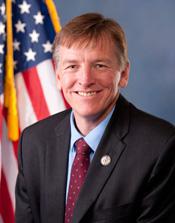0
LASSO Act
1/31/2025, 5:05 PM
Summary of Bill HR 34
The main goal of this legislation is to provide additional funding for Social Security, which is a critical program that provides financial support to retired and disabled individuals. By directing a portion of the revenue from public lands towards the trust fund, the bill seeks to ensure the long-term sustainability of the program and help address any potential funding gaps that may arise in the future.
Supporters of the bill argue that utilizing revenue from public lands to support Social Security is a practical and effective way to strengthen the program without increasing taxes or cutting benefits. They believe that this approach will help ensure that Social Security remains a reliable source of income for millions of Americans in the years to come. Opponents of the bill may argue that diverting funds from public lands to the Social Security Trust Fund could have negative implications for other programs or initiatives that rely on this revenue. They may also raise concerns about the potential impact on the economy or the environment if a significant portion of the funds generated from public lands is redirected to support Social Security. Overall, Bill 119 hr 34 represents an effort to address the financial challenges facing the Social Security program by tapping into the revenue generated from public lands. The bill aims to strike a balance between supporting the needs of retirees and disabled individuals while also ensuring the responsible management of public lands and resources.
Congressional Summary of HR 34
Land And Social Security Optimization Act or the LASSO Act
This bill requires 10% of revenue generated by public lands, including submerged lands on the Outer Continental Shelf, under the jurisdiction of the Department of the Interior and the Forest Service to be deposited into the Federal Old-Age and Survivors Insurance Trust Fund, which is used to pay Social Security benefits to retirees and their families and to survivors of deceased workers.
Read the Full Bill
Current Status of Bill HR 34
Bipartisan Support of Bill HR 34
Total Number of Sponsors
8Democrat Sponsors
0Republican Sponsors
8Unaffiliated Sponsors
0Total Number of Cosponsors
1Democrat Cosponsors
0Republican Cosponsors
1Unaffiliated Cosponsors
0Policy Area and Potential Impact of Bill HR 34
Primary Policy Focus
Public Lands and Natural ResourcesAlternate Title(s) of Bill HR 34
Comments

Hunter Strickland
11 months ago
I think this bill is good cuz it helps Social Security. It takes money from public lands and puts it in the trust fund. This will help me when I retire.

Victoria Cash
10 months ago
I'm so excited about this new bill! It's about time something like this happened. How do you think this will impact our country in the long run?

